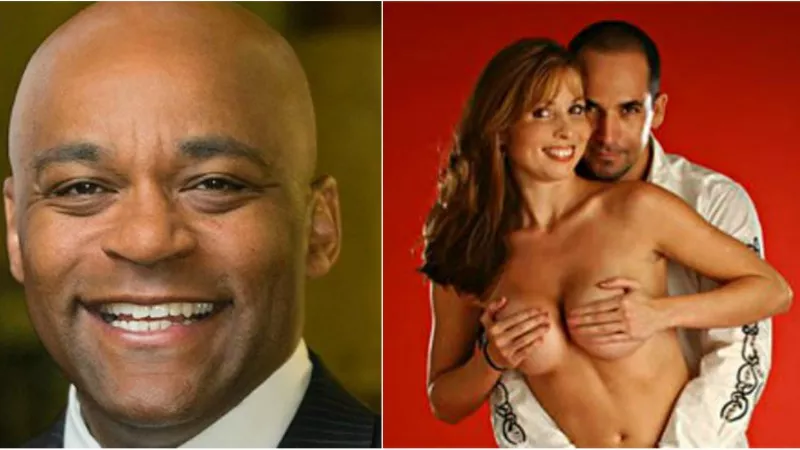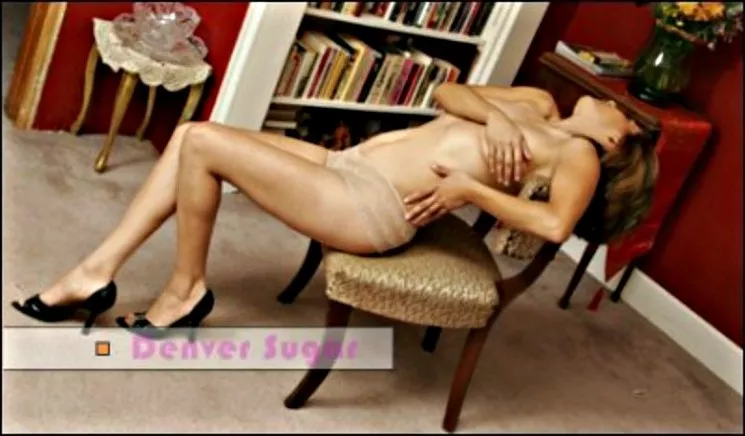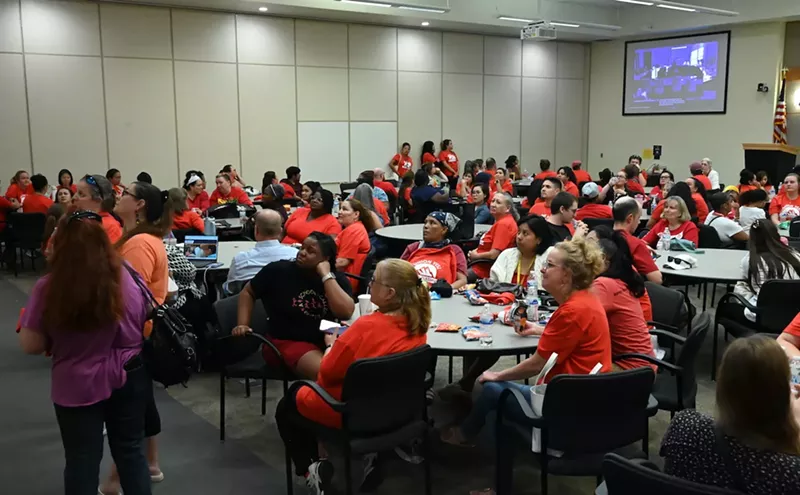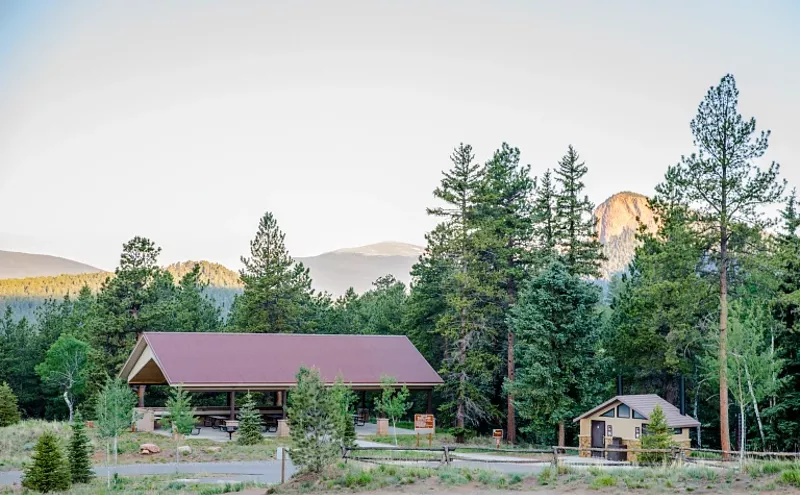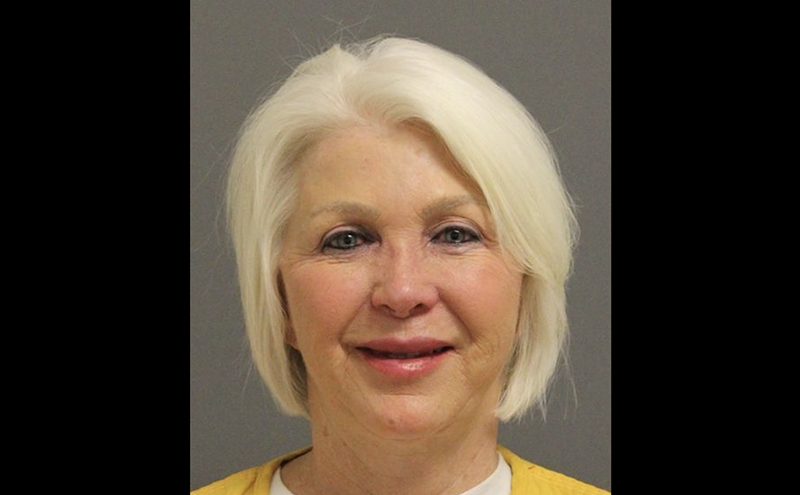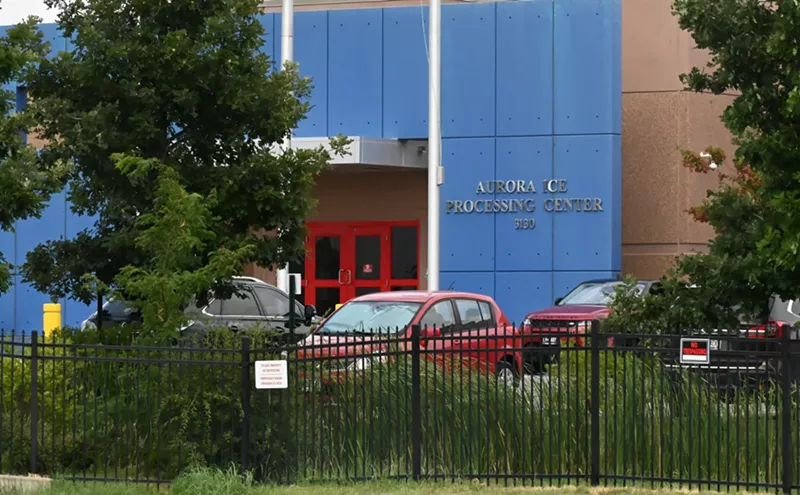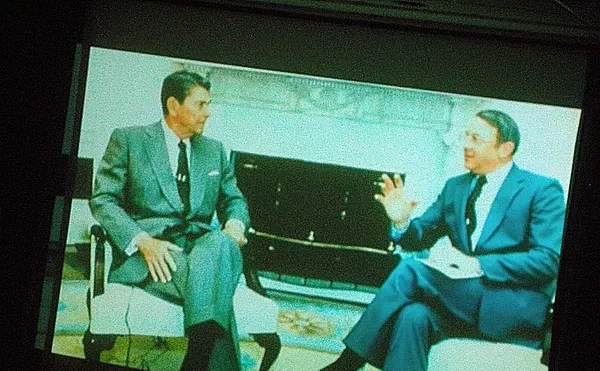Denver Mayor Michael Hancock's apology for sending inappropriate texts to Denver police officer Leslie Branch-Wise in 2011 and 2012, when she was on his security detail, has sparked renewed interest in stories from that same period suggesting that he'd been a client of the Denver Players/Denver Sugar prostitution ring. How did Hancock skate out of trouble back then? A recording of a conversation between Scottie Ewing, the enterprise's central figure, and the Denver Post's Chuck Plunkett, now the paper's editorial-page editor, demonstrates how Denver's power elite managed to prevent Hancock, the mayor-elect at the time, from being brought down by the scandal. And you can bet similar dynamics are at play today in regard to the Branch-Wise matter.
Ewing was a guest of host Peter Boyles for an entire hour yesterday, March 7, appearing shortly after yours truly; click to listen to the entire segment. The recording, made in June 2011, can be heard for the first time beginning around the 27-minute mark; it deals with questions about whether the Denver Police Department, then headed by Chief Gerry Whitman, possessed images showing Hancock entering Denver Sugar, at 1675 Fillmore Street. A misspelled variation on his name — "Mike Handcock" — had shown up on a Denver Players/Denver Sugar client list, alongside Hancock's cell phone number.
In the recording, Plunkett tells Ewing, "Bruce James, who's a very powerful attorney for the Brownstein firm, a managing partner, at 5:22 p.m. on Friday, June 3 — that's last Friday, the same time we were asking for documents — he wrote a letter to Chief Whitman on Michael Hancock's behalf, saying, 'We request any videotapes, photographs, any evidence of such that shows Michael Hancock entering or leaving 1675 Fillmore or his vehicle at or near the address and/or photos or video of his license plates at that facility.'"
James "explains that it's not a criminal matter," Plunkett goes on, "so if that kind of material exists, it wouldn't hurt the public record if it came into Hancock's possession. 'It is without coincidence that this request mirrors the request you received from 9News today' — we were on that same request. 'We believe the story they are investigating is completely without merit and are anxious to prove that the rumors about his presence at 1675 Fillmore are absolutely false. However, under no circumstances are we authorizing or consenting to the release of the requested material directly to 9News and we hereby object to their request. All of the requested materials should be delivered directly to me as counsel for Mr. Hancock. Thank you very much, Bruce James, managing partner.'"
After a pause, Plunkett offers his take on the letter, noting that "literally in one breath, they're saying, 'We're going to cooperate with the news media and make everything available and be fully transparent.' And in the next breath, they're laying the groundwork for collecting evidence and keeping it in their office."
By the way, Plunkett, corresponding with Westword via email, confirmed that he's the person on the recording, but wouldn't comment on the rest of the program, maintaining that he hadn't listened to it. Other parts of the Boyles-Ewing discussion centered on Deborah Sherman, then a 9News reporter, including a reference to a film crew from the station recording the moment when an escort from Denver Players/Denver Sugar picked out Hancock from a photo lineup; to our knowledge, that sequence never aired. When contacted on the subject, Sherman, too, declined to weigh in, owing to her current position as spokesperson for the local branch of the FBI.
This isn't the first time that word of the letter surfaced. We shared an excerpt from it in our June 11, 2011, post headlined, "Michael Hancock & Denver Players Prostitution Ring: Bound for an Anthony Weiner Moment?" In that item, we wrote, "Turns out Denver police reps have no such video. But 7News obtained an email from a Hancock lawyer to the Manager of Safety's Office pertaining to a Denver Post info search on the subject. The attorney told the city that if nothing damning popped up, officials could divulge the fact to the Post — but if something did, sharing such revelations would violate Hancock's privacy interests."
By the way, 7News did air a story on the subject — and afterward, Hancock's team at the time provided us with the following statement:
"KMGH aired a story tonight with several unsubstantiated and false claims.It's understandable why Hancock's handlers would want to put distance between him and Ewing's businesses, as demonstrated by this vintage commercial for Denver Sugar:
"In the final days of the mayoral campaign, Michael Hancock was the subject of a desperate and deceptive attack intended to influence the election. Michael personally rejected the allegations to KMGH and other organizations and directed his campaign to cooperate fully with news organizations seeking information.
"At the request of two news organizations to dispel false rumors related to evidence, our attorney requested any evidence the Denver Police Department had.
"The response from the Denver Department of Safety, which KMGH received but chose not to air, was clear:
"There are no 'videotapes, photographs or any other evidence' held by the Denver Police Department of 'Michael Hancock entering or leaving 1675 Fillmore Street' or '(h)is vehicle at or near the address and/or photos of his license plate at that facility.'"
"Later that same day, in response to a subsequent media inquiry, and in a letter in the possession of KMGH, the Denver Department of Safety confirmed that there was no video, photography or other evidence of Michael Hancock present at any other location under surveillance.
"Despite those facts, KMGH used our request for information to air false rumors.
"We are disappointed KMGH chose to air such unsubstantiated claims."
And in the end, the attorneys were successful. Hancock suffered through some uncomfortable headlines for a few weeks before the entire kerfuffle faded from most memories — until Branch-Wise spoke out about inappropriate texts sent to her by the mayor, including one that asked if she'd ever taken a pole-dancing class.
The jury's still out about whether the same kind of thing could happen again. Yesterday's rally calling for Hancock's resignation was a fairly modest affair, attracting only about sixty people. And while former Denver City Council members Susan Shepherd and Susan Barnes-Gelt have demanded that Hancock step down, current councilpersons have refrained from doing much more than expressing disappointment in his behavior, which he insists wasn't sexual harassment but a blurring of the lines between friend and colleague.
In the meantime, the Colorado Fraternal Order of Police, which also wants Hancock to resign, has asked for other potential victims to come forward. Without that kind of development or others of a similar magnitude, Hancock may manage to survive another potential political disaster — just as he did nearly seven years ago.

